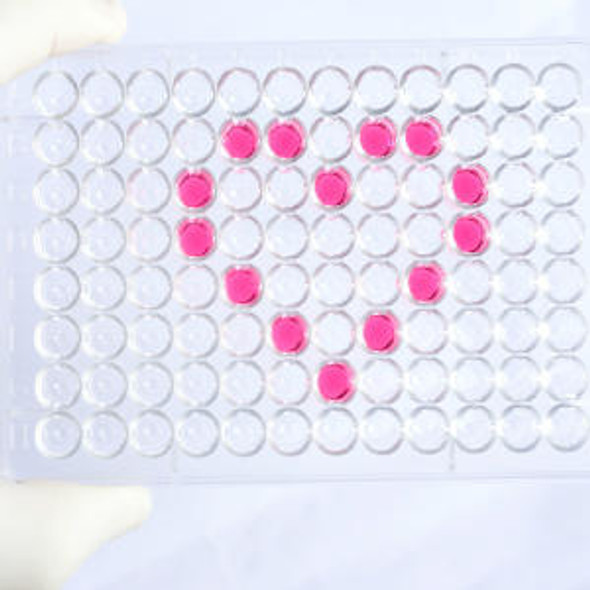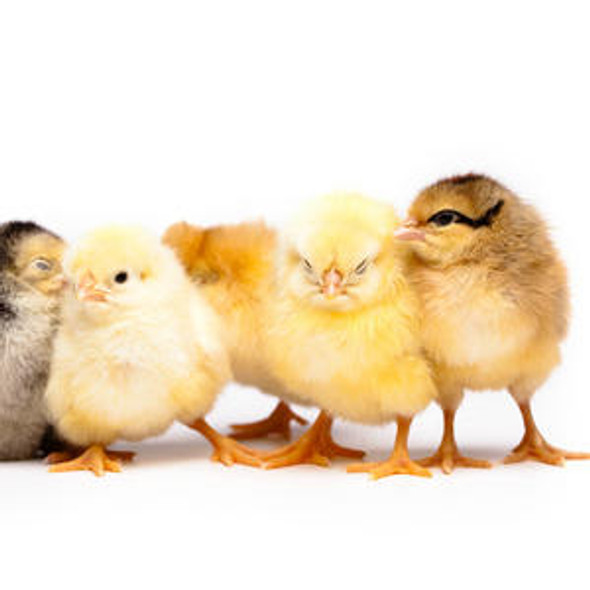Cell Biology Antibodies 14
Anti-MUC5B Antibody (CAB18146)
- SKU:
- CAB18146
- Product Type:
- Antibody
- Reactivity:
- Human
- Reactivity:
- Mouse
- Reactivity:
- Rat
- Host Species:
- Rabbit
- Isotype:
- IgG
- Research Area:
- Cell Biology
Description
| Antibody Name: | Anti-MUC5B Antibody |
| Antibody SKU: | CAB18146 |
| Antibody Size: | 20uL, 50uL, 100uL |
| Application: | IF |
| Reactivity: | Human, Mouse, Rat |
| Host Species: | Rabbit |
| Immunogen: | Recombinant protein of human MUC5B. |
| Application: | IF |
| Recommended Dilution: | IF 1:50 - 1:200 |
| Reactivity: | Human, Mouse, Rat |
| Positive Samples: |
| Immunogen: | Recombinant protein of human MUC5B. |
| Purification Method: | Affinity purification |
| Storage Buffer: | Store at -20°C. Avoid freeze / thaw cycles. Buffer: PBS with 0.02% sodium azide, 50% glycerol, pH7.3. |
| Isotype: | IgG |
| Sequence: | Email for sequence |
| Gene ID: | 727897 |
| Uniprot: | Q9HC84 |
| Cellular Location: | |
| Calculated MW: | |
| Observed MW: | Refer to figures |
| Synonyms: | MG1, MUC-5B, MUC5, MUC9, MUC5B |
| Background: |
| UniProt Protein Function: | MUC5B: Gel-forming mucin that is thought to contribute to the lubricating and viscoelastic properties of whole saliva and cervical mucus. Defects in MUC5B are a cause of susceptibility to pulmonary fibrosis idiopathic (IPF). Pulmonary fibrosis is a lung disease characterized by shortness of breath, radiographically evident diffuse pulmonary infiltrates, and varying degrees of inflammation and fibrosis on biopsy. It results in acute lung injury with subsequent scarring and endstage lung disease. A common polymorphism in the promoter of MUC5B is associated with familial interstitial pneumonia and idiopathic pulmonary fibrosis, suggesting that dysregulated MUC5B expression in the lung may be involved in the pathogenesis of pulmonary fibrosis (PubMed:21506741). |
| UniProt Protein Details: | Protein type:Cell adhesion; Secreted; Secreted, signal peptide Chromosomal Location of Human Ortholog: 11p15.5 Cellular Component: extracellular space; Golgi lumen Molecular Function:protein binding Biological Process: protein amino acid O-linked glycosylation; cellular protein metabolic process; O-glycan processing; regulation of macrophage activation; defense response to bacterium; post-translational protein modification Disease: Pulmonary Fibrosis, Idiopathic |
| NCBI Summary: | This gene encodes a member of the mucin family of proteins, which are highly glycosylated macromolecular components of mucus secretions. This family member is the major gel-forming mucin in mucus. It is a major contributor to the lubricating and viscoelastic properties of whole saliva, normal lung mucus and cervical mucus. This gene has been found to be up-regulated in some human diseases, including sinus mucosa of chronic rhinosinusitis (CRS), CRS with nasal polyposis, chronic obstructive pulmonary disease (COPD) and H. pylori-associated gastric disease, and it may be involved in the pathogenesis of these diseases. [provided by RefSeq, Jul 2010] |
| UniProt Code: | Q9HC84 |
| NCBI GenInfo Identifier: | 308153579 |
| NCBI Gene ID: | 727897 |
| NCBI Accession: | Q9HC84.3 |
| UniProt Secondary Accession: | Q9HC84,O00447, O00573, O14985, O15494, O95291, O95451 Q14881, Q7M4S5, Q99552, Q9UE28, |
| UniProt Related Accession: | Q9HC84 |
| Molecular Weight: | 596,340 Da |
| NCBI Full Name: | Mucin-5B |
| NCBI Synonym Full Names: | mucin 5B, oligomeric mucus/gel-forming |
| NCBI Official Symbol: | MUC5B |
| NCBI Official Synonym Symbols: | MG1; MUC5; MUC9; MUC-5B |
| NCBI Protein Information: | mucin-5B; cervical mucin MUC5B; sublingual gland mucin; mucin 5, subtype B, tracheobronchial; high molecular weight salivary mucin MG1 |
| UniProt Protein Name: | Mucin-5B |
| UniProt Synonym Protein Names: | Cervical mucin; High molecular weight salivary mucin MG1; Mucin-5 subtype B, tracheobronchial; Sublingual gland mucin |
| Protein Family: | Mucin |
| UniProt Gene Name: | MUC5B |
| UniProt Entry Name: | MUC5B_HUMAN |






